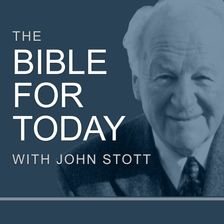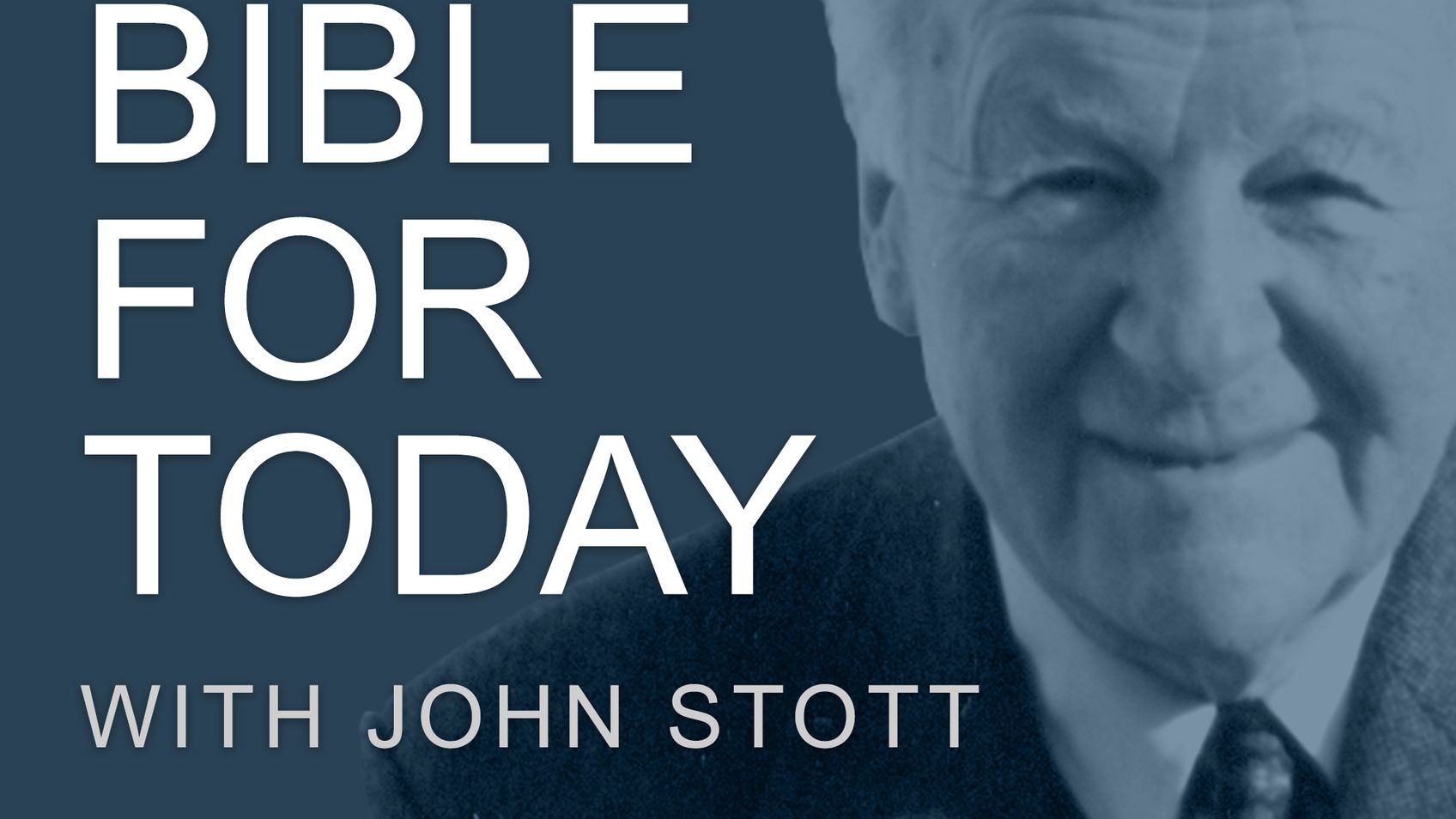The Spirit and the Bible - Part 2
May 2, 2021

The Bible for Today with John StottPremier
John Stott shows how that being faithful to the Bible can often result in the church facing opposition, and why we need to be steadfast in our belief in the Scriptures.
More From The Bible for Today with John Stott

Marks of a Healthy Church - Part 1
The Bible for Today with John Stott
May 9, 2021
John Stott explains that while it is good to expect revival in the church, there are certain things that are necessary for this to happen. He shows th

Marks of a Healthy Church - Part 2
The Bible for Today with John Stott
May 16, 2021
John Stott shows how it is sometimes possible to avoid 'speaking truth to power' if it means receiving less opposition. He explains that there must be

Jesus Christ: Tried, Tested And Proven - Part 1
The Bible for Today with John Stott
May 23, 2021
John Stott investigates how the church went from being a handful of people that Jesus gathered around Him to the world-wide phenomenum it is today.

The Spirit and the Bible - Part 1
The Bible for Today with John Stott
April 25, 2021
John Stott explains how the Bible came into existance and how God spoke to individual writers through the inspiration of the Holy Spirit. John Stott s

Encounter With Jesus - Part 2
The Bible for Today with John Stott
April 18, 2021
John Stott shows us that there is a world of difference between knowing about Jesus and knowing Jesus personally, and how this can only happen by us o

Encounter With Jesus - Part 1
The Bible for Today with John Stott
April 11, 2021
John Stott explains that Christianity is not us being a slave to a belief or ethical system but the freedom that can only be found through faith and t
More on OpenTheo

Could the Writers of Scripture Have Been Influenced by Their Fallen Nature?
#STRask
October 23, 2025
Questions about whether or not it’s reasonable to worry that some of our current doctrines were influenced by the fallen nature of the apostles, and h

Are You Accursed If You Tithe?
#STRask
December 15, 2025
Questions about whether anyone who tithes is not a Christian and is accursed since Paul says that if you obey one part of the Mosaic Law you’re obliga

What Are Some Good Ways to Start a Conversation About God with Family Members?
#STRask
October 30, 2025
Questions about how to start a conversation about God with non-Christian family members, how to keep from becoming emotional when discussing faith iss

Did God Create Us So He Wouldn’t Be Alone?
#STRask
November 3, 2025
Questions about whether God created us so he wouldn’t be alone, what he had before us, and a comparison between the Muslim view of God and the Christi

Does Open-Mindedness Require Studying Other Religions Before Becoming a Christian?
#STRask
February 9, 2026
Questions about the claim that if Christians really want to be open-minded, they need to read and study other religions before committing to Christian

Protestants and Catholics: What’s the Difference? With Chad Van Dixhoorn, Blair Smith, and Mark McDowell
Life and Books and Everything
November 26, 2025
How should Protestants think about the Catholic Mass? About the Eucharist? About the history and development of the papacy? In this panel discussion,

Did Jesus Prove He Wasn’t Sinless When He Overturned the Tables?
#STRask
December 29, 2025
Questions about whether Jesus proved he wasn’t sinless when he overturned the tables, whether Jesus’ response to the Pharisees in Mark 3:22–26 was a b

What Is Wrong with Wokeness? With Neil Shenvi
Life and Books and Everything
January 19, 2026
In this timely interview, Kevin talks to Neil Shenvi about his new book (co-authored with Pat Sawyer), entitled “Post Woke: Asserting a Biblical Visio

Why Should We Pray If God Already Knows What’s Going to Happen?
#STRask
January 29, 2026
Questions about why we should pray if God already knows what’s going to happen, how the effectiveness of prayer is measured, and whether or not things

Kingdom Priorities: Following the Teachings of Jesus
Knight & Rose Show
February 14, 2026
Wintery Knight and Desert Rose discuss Jesus' teachings from the Gospels, emphasizing truth, evidence, self-denial, and forgiveness. They explore pass

Keri Ingraham: School Choice and Education Reform
Knight & Rose Show
January 24, 2026
Wintery Knight and guest host Bonnie welcome Dr. Keri Ingraham to discuss school choice and education reform. They discuss the public school monopoly'

Can Two Logical People Come to Conflicting Conclusions Without Committing a Fallacy?
#STRask
January 8, 2026
Questions about whether two logical people can come to conflicting conclusions on a topic without committing a fallacy, how Greg, as a public figure,

Sense, Sensibility, and Adam Smith with Jan Van Vliet
Life and Books and Everything
February 16, 2026
This year is a special anniversary for the United States as Americans celebrate 250 years of independence. But 1776 was an important year in more ways

The Making of the American Mind with Matthew Spalding
Life and Books and Everything
February 2, 2026
The United States is unique in how much attention it pays to its founding, its founders, and its founding documents. Arguably, the most famous and mos

Conservatism and Religious Freedom with John Wilsey
Life and Books and Everything
October 27, 2025
What is conservatism? And why does it go hand in hand with religious freedom? How should we think about the American experiment of ordered liberty? Ha
